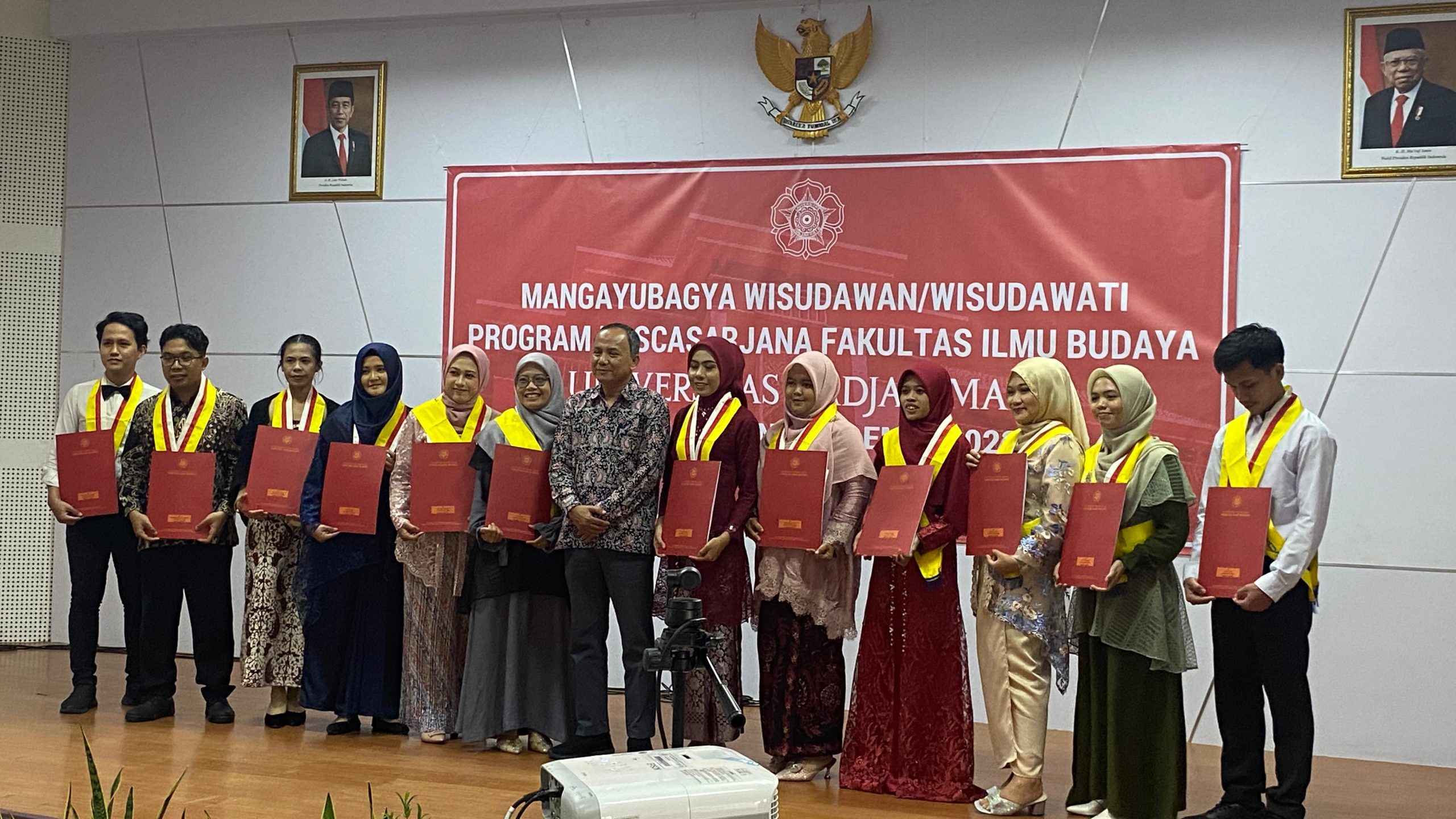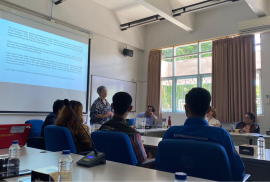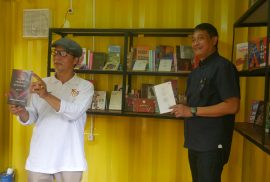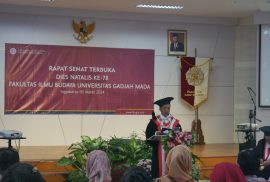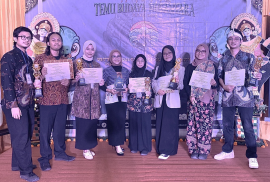SDG 4: Quality education | SDGs 4: Education for sustainability | SDG 8: Decent work and economic growth | SDGs 8: Decent work for all | SDGs 9: Affordable access | SDG 10: Reduced inequalities | SDGs 10: Education | SDG 11: Sustainable cities and communities | SDGs 11: Adaptable | SDG 16: Peace, justice and strong institutions | SDGs 16: Accountable institutions
The happy graduates and their parents were present at the Raden Soegondo Building Auditorium, Faculty of Cultural Sciences UGM / to take part in the Mangayubagya Graduate Program Graduate Program Third period Academic Year 2023/2024 on April 24, 2024. As usual before starting the event, do not forget the Master of Ceremony, which at that time was entrusted to Vivin and Diyah, conveyed some information for safety and smoothness during the event. The audience was then asked to stand while the Dean, Deputy Dean, Head of Department, and Head of Postgraduate Study Program, Faculty of Cultural Sciences, Universitas Gadjah Mada entered the ceremony room. After all attendees were in the room, the MC welcomed everyone.
The event began with several speeches. The first speech, from the Dean of the Faculty of Cultural Sciences, will be represented by the Vice Dean for Academic and Student Affairs, Dr. Nur Saktiningrum, M.Hum. The second speech will be delivered by the Deputy Graduate of the Middle East Cultural Studies Master Program, Br. Rafika Fidlaty Zulfa, M.A. The event continued with the presentation of Beksan Nirbaya Dance performed by FIB UGM students who are members of the Sastro Obah student activity unit. Beksan Nirbaya or Edan-edanan dance is one of dozens of dances in the Special Region of Yogyakarta. The dance is named “Edan-edanan Nirbaya Dance”. “Nir” which means reject, “Baya” which means danger so that this dance is interpreted as a dance that rejects danger, especially during the wedding procession or other major events. With four dancers and pairs, this dance was created not only as a ritual to repel bad luck, but also as entertainment.
The next event was the submission of graduation documents consisting of English diplomas and transcripts. The graduation documents were submitted by each Head of Study Program to the graduates. The graduates came forward in an orderly manner to receive the graduation documents followed by a group photo. Before closing, the event was paused for a moment to pray for protection and safety for us and goodness for the Faculty of Cultural Sciences. The joint prayer was led by Br. Cahya Daru, M.A. Finally, the Dean, Deputy Deans, Heads of Departments, and Heads of Postgraduate Study Programs, Faculty of Sciences followed by graduates and parents / guardians were allowed to leave the ceremony room. The organizing committee would like to thank you for your presence in this mangayubagya event.
